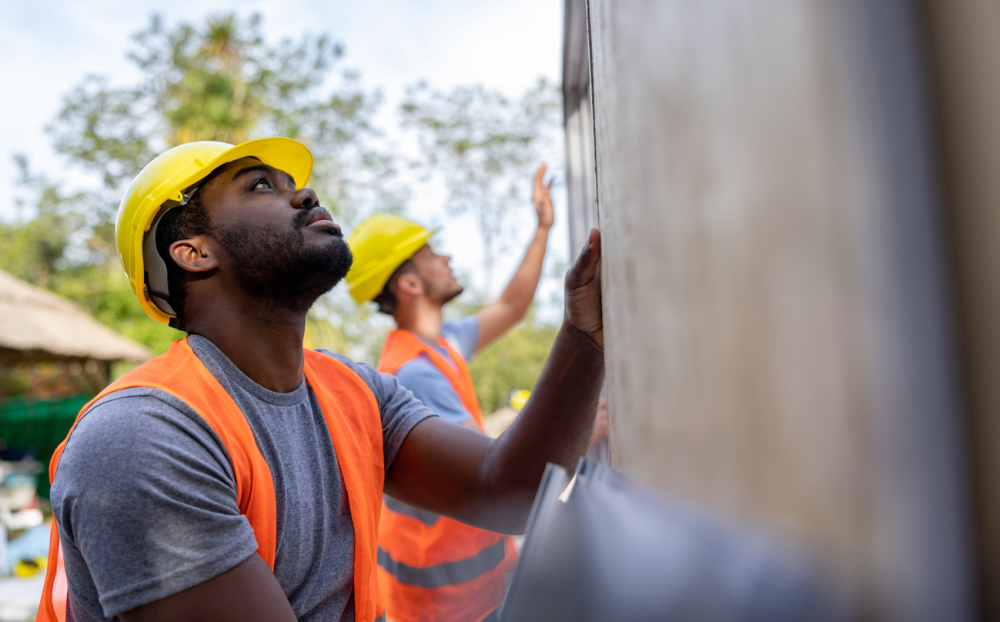Betsy Agar, director of the Buildings program at the Pembina Institute, made the following statement in response to Canada’s Housing Plan, announced today.
“Affordable housing isn’t affordable unless it’s energy efficient. We welcome today’s federal government housing plan announcement and the $903.5 million investment in the Canada Greener Homes Affordability Program, renewing and improving existing energy efficiency programs, and continuing to develop national approaches to home energy labelling. By focusing on helping homeowners lower home energy bills, this investment will also help reduce building energy demand and carbon pollution through comprehensive retrofits and by building quality new homes. It is a good start and now we hope this investment is matched by all other orders of government and utilities to increase the pace of deep retrofits and meet our carbon reduction targets and ensure new housing is built right the first time.
It’s estimated that approximately 20 per cent of Canadian households experience energy poverty. Heating and cooling expenses continue to escalate across the country, pushing the cost of living further out of reach for many Canadians. Recent modeling from the Pembina Institute estimates an average annual investment of $2.8 billion from 2025 to 2050 is needed from federal and provincial governments and utilities to provide zero cost retrofits for low-income households living with energy poverty. Incentives and subsidies are only part of the puzzle, provincial energy efficiency regulations need to be updated to align with net-zero goals that include targets and accountability.
Deep retrofits are holistic upgrades that improve occupant health and make housing more affordable by lowering utility bills, achieved through the use of low-carbon materials, new technologies (like heat pumps) and integration with smart electricity grids. These upgrades are not only doable and necessary, but also provide many benefits beyond energy efficiency, making homes healthier, safer, climate resilient, and affordable to heat and cool.
Given our twin housing and climate crises, we need to ramp up new construction that is climate-safe and does not burden homeowners with high energy costs and the need for future retrofits. We recommend tying supports for new builds to upper building code tiers because Canadians deserve homes that will protect them from increasingly frequent extreme weather and escalating utility costs.
We also look forward to seeing the launch of the $4.3 billion Urban, Rural and Northern Indigenous Housing Strategy and expect to see engagement with Indigenous communities on how to best deploy the strategy.
Today’s announcement frames a plan for Canada’s buildings—the third largest contributor to the country’s emissions—to achieve net-zero carbon emissions by 2050. While these investments represent progress on some priority issues for greener housing, it leaves significant gaps on other critical housing safety and affordability challenges for Canadians and falls short of what’s needed to reach a rate of 600,000 home retrofits per year. A successful market transformation also requires provincial regulations and policies to phase out fossil fuel-based heating, require resilient construction and prioritize the health and safety of Canadians. We look forward to seeing a suite of tools and mechanisms built into the much-anticipated Canada Green Building Strategy.
Now is the time for the provinces and utilities to come together to show leadership and contribute to the clean economy, which will deliver affordable heating and cooling, create good jobs, while addressing climate change and protecting Canadians.”
Pembina Institute experts are available for media interviews upon request.
Contact
Sarah Snowdon
Senior Communications Lead, Pembina Institute
416-838-3423
Background
Report: Better Buildings for All: Relieving Energy Poverty Through Deep Retrofits




